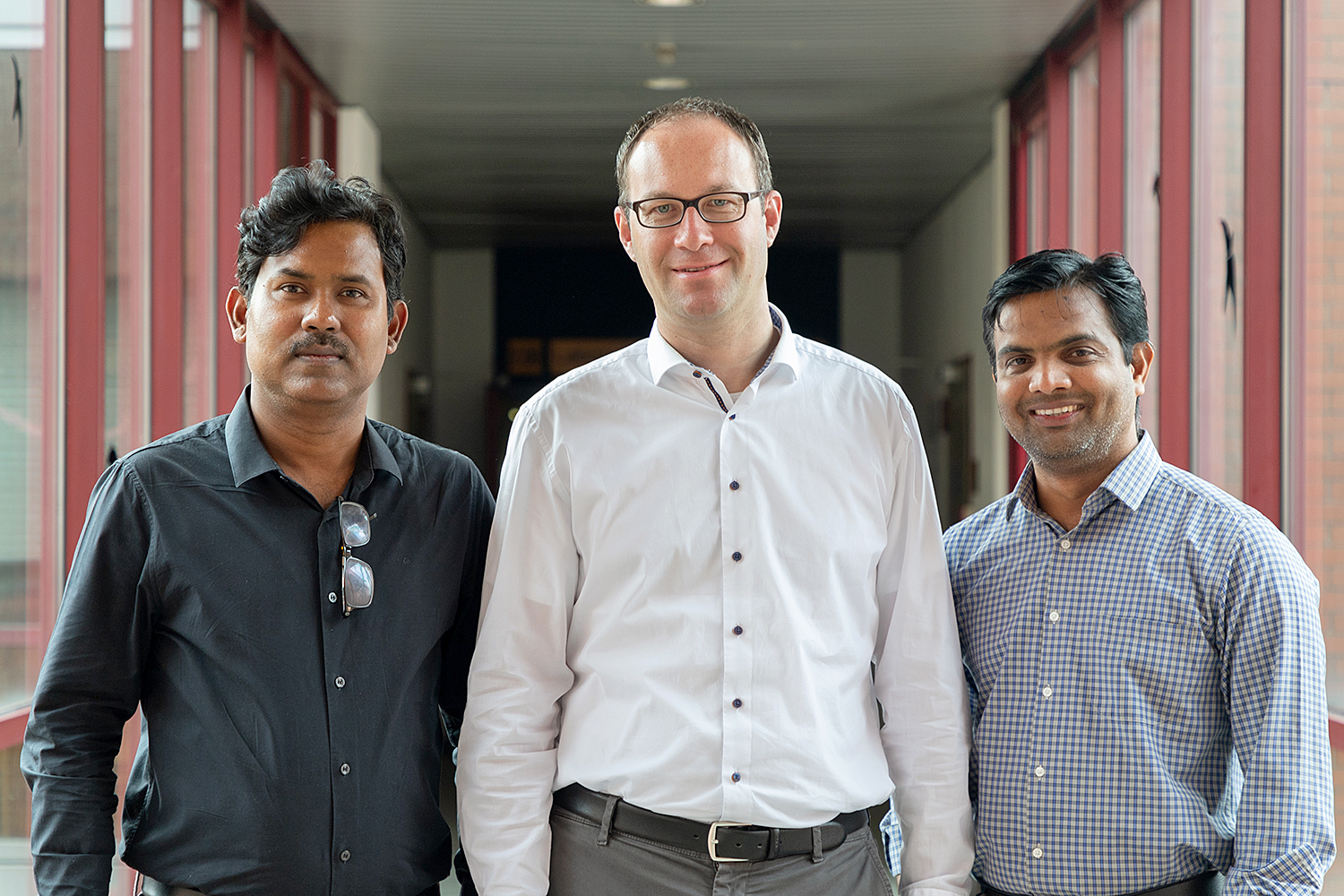Visit from India Two Humboldt visiting professors at the Institute of Organic Chemistry
Professor Daniel B. Werz and his working group have had a double visit from India since May: Professor Akkattu T. Biju from the Indian Institute of Science in Bangalore and Professor Swadhin K. Mandal from the Indian Institute of Science Education and Research in Kolkata are guests at the Institute of Organic Chemistry of the Technische Universität Braunschweig. Their stay is supported by a return fellowship from the Alexander von Humboldt Foundation.

Professor Swadhin K. Mandal (left) and Professor Akkattu T. Biju (right) from India are Professor Daniel B. Werz’s guests. Picture credits: Marisol Glasserman/TU Braunschweig
The two scientists already got to know Professor Werz during his stays in India and at various conferences and discovered common research interests. The focus of their stay in Germany, which lasts several months, is on exchange and networking with colleagues. “The TU Braunschweig is an excellent place for research and work. What I really like is the diversity of research interests,” says Professor Biju and Professor Mandal adds: “The exchange with Professor Werz and the other professors and staff of Organic and Inorganic Chemistry is very helpful. We almost feel at home here.”
A chemical toolbox
Like Professor Werz, Professor Mandal and Professor Biju also conduct research in the field of organic chemistry. “Our research can be summarized as method development. It can be imagined as a toolbox that we are continuing to develop. We ask ourselves how molecules can be produced as quickly, effectively and selectively as possible,” explains Werz.
In India, Professor Biju works at the Department of Organic Chemistry at the Indian Institute of Science in Bangalore. The chemist and his team are working on transition metal-free reactions and their applications in organic synthesis. Thereby they develop new strategies to produce new molecules without catalysts of metal. During his stay in Germany, he wrote a joint article with Professor Werz in which the research focus of the two scientists complements each other.
Metal-free catalysts
Professor Mandal is head of the Department of Chemical Sciences at the Indian Institute of Science Education and Research Kolkata. His research focus is organometallic chemistry. Together with his team, he is working on ways to convert the greenhouse gas carbon dioxide into valuable products such as fuels, among other things. Here, environmentally friendly and cost-effective catalysts are particularly important. Mandal is therefore investigating how toxic and expensive metals can be avoided in the production of such catalysts. “Swadhin and I have discussed chemistry a lot. This has led to ideas for possible future cooperation,” says Professor Werz.
